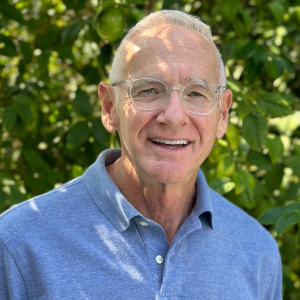What is Antimicrobial Resistance (AMR)?
AMR is an acronym for Antimicrobial Resistance.
AMR is a natural phenomenon where microorganisms such as bacteria, viruses, fungi, and parasites evolve to become resistant to the antimicrobial medicines that were designed to treat them. This means that the medicines become less effective or completely ineffective in treating the infections caused by these resistant microorganisms.
AMR is a growing public health concern worldwide, as it poses a threat to the effectiveness of many commonly used antibiotics and other antimicrobial medicines. It can lead to longer illnesses, increased healthcare costs, and in some cases, even death.
Antimicrobials can be grouped according to the microorganisms they target. For example, antifungals treat fungi, antibiotics treat bacteria, antivirals treat viruses, and antiparasitics treat parasites.
One of the major contributors to AMR is the overuse and misuse of antimicrobials.
Some examples of this overuse include human health where doctors sometimes prescribe antibiotics based on symptoms a patient presents rather than a confirmed diagnosis. Common medical conditions where antibiotics are prescribed unnecessarily are flu, colds, and COVID-19 which are caused by viruses as opposed to bacteria.
Some common conditions that rely on antimicrobials include (not limited to):
- The use of antimicrobial medicines whilst undergoing Cancer treatment
- Using antibiotics to prevent or treat bacterial infections during or after surgery
- Urinary Tract Infections (UTIs or sometimes also called Bladder Infections)
- Organ transplants, prosthetic implants, and amputations are at a high risk of infection and rely on antibiotics to treat them if they occur
- Tuberculosis and some other respiratory infections which rely on antibiotics
- Various zoonotic diseases (i.e. human diseases caused by insects and animals) such as malaria where antimalarial medicines are used and Lyme disease caused by ticks
- Bacterial infections caused by food including Listeria and Salmonella
- In dentistry, only when infections appear
- Where patients are immune-compromised such as those living with HIV/AIDS or a rare disease
- Mothers and newborns where infections can be caused during childbirth including maternal sepsis
Antibiotics
treat bacterial infections
Antivirals
treat viral infections
Antifungals
treat fungal infections
Antiparasitics
treat parasitic infections
One Health: Antimicrobials in humans, animals, food production and the environment
The use of antimicrobials in animal farming and food production can have a significant impact on human health and the environment, highlighting the importance of a One Health approach. This approach recognizes that human health, animal health, and environmental health are all interconnected.
The use of antimicrobials in animal farming can lead to the development of antimicrobial resistance (AMR) in the animals and the environment. This can result in the spread of resistant bacteria to humans through direct contact, consumption of contaminated food, or exposure to contaminated soil, water, and air. Once these bacteria infect humans, it can be difficult to treat them with antibiotics, which can lead to longer illness, increased healthcare costs, and higher mortality rates.
In addition, the use of antimicrobials in animal farming can also have an impact on the environment, as it can contribute to the development of antimicrobial-resistant bacteria in soil, water, and other ecosystems. This can impact the health of wildlife and contribute to the spread of resistant bacteria to humans.
Therefore, it is important to use antimicrobials responsibly and only when necessary, both in animal farming and human medicine. A One Health approach that involves collaboration between human health, animal health, and environmental health sectors is necessary to address the issue of AMR and reduce the risk to humans.

RAISING VOICES FOR AMR NEWSLETTER
Sign up to receive the latest news including upcoming events, programmes, AMR educational and advocacy resources and fundraising opportunities.




